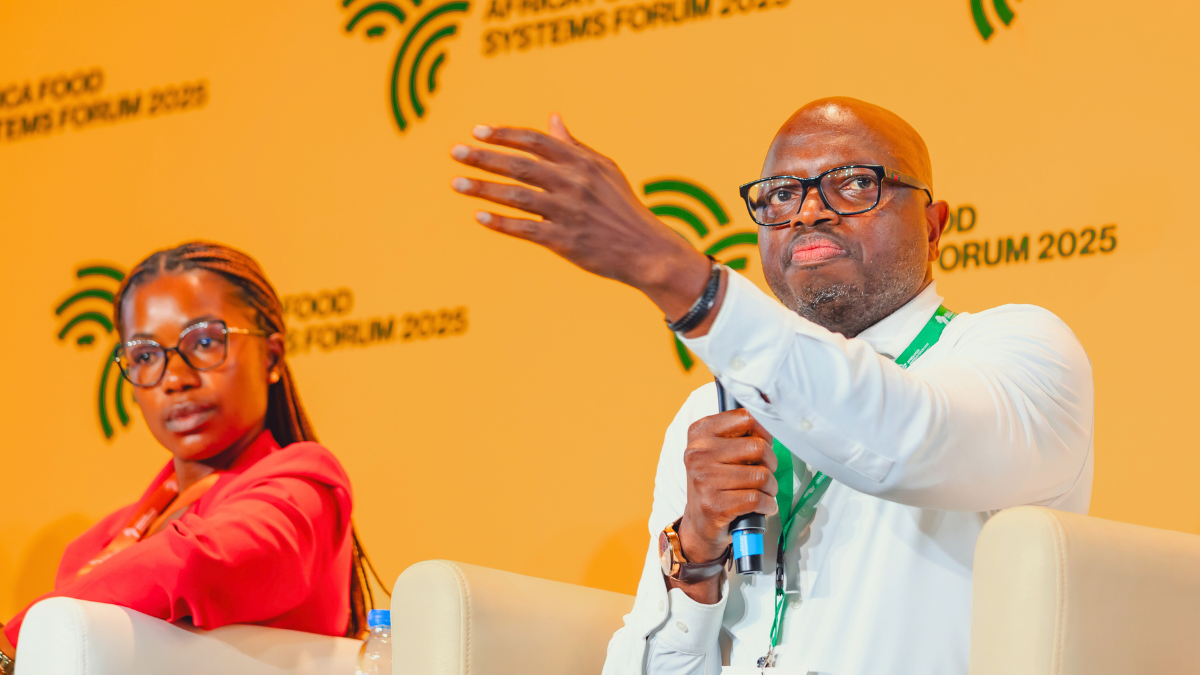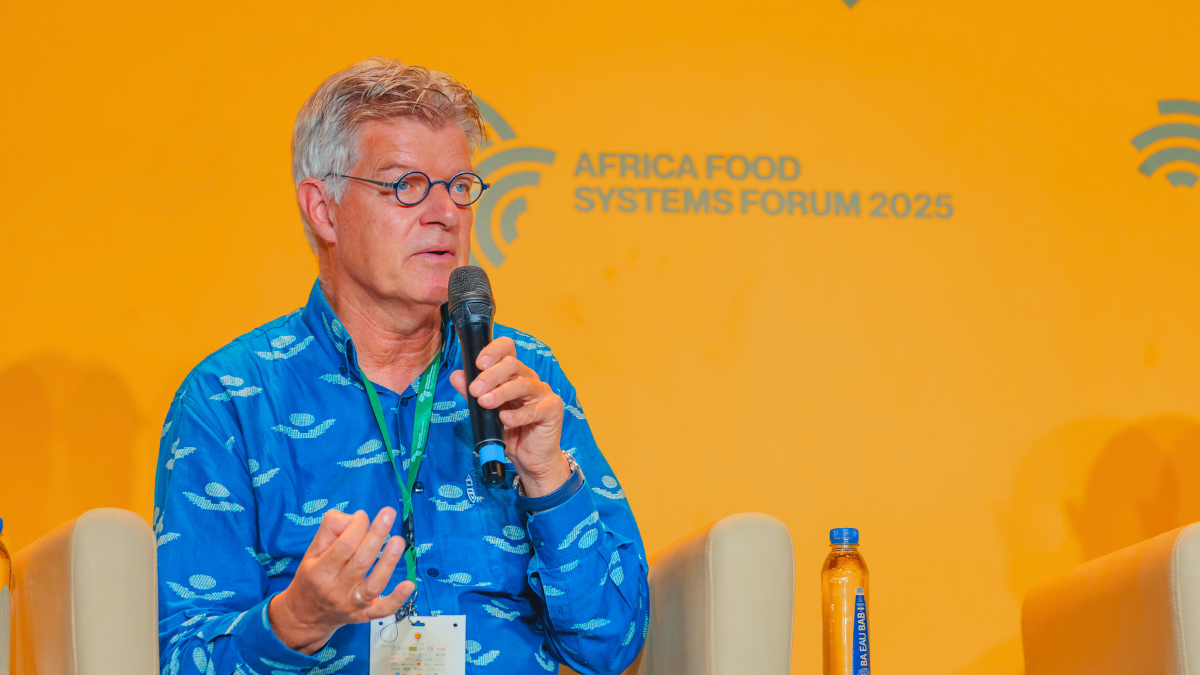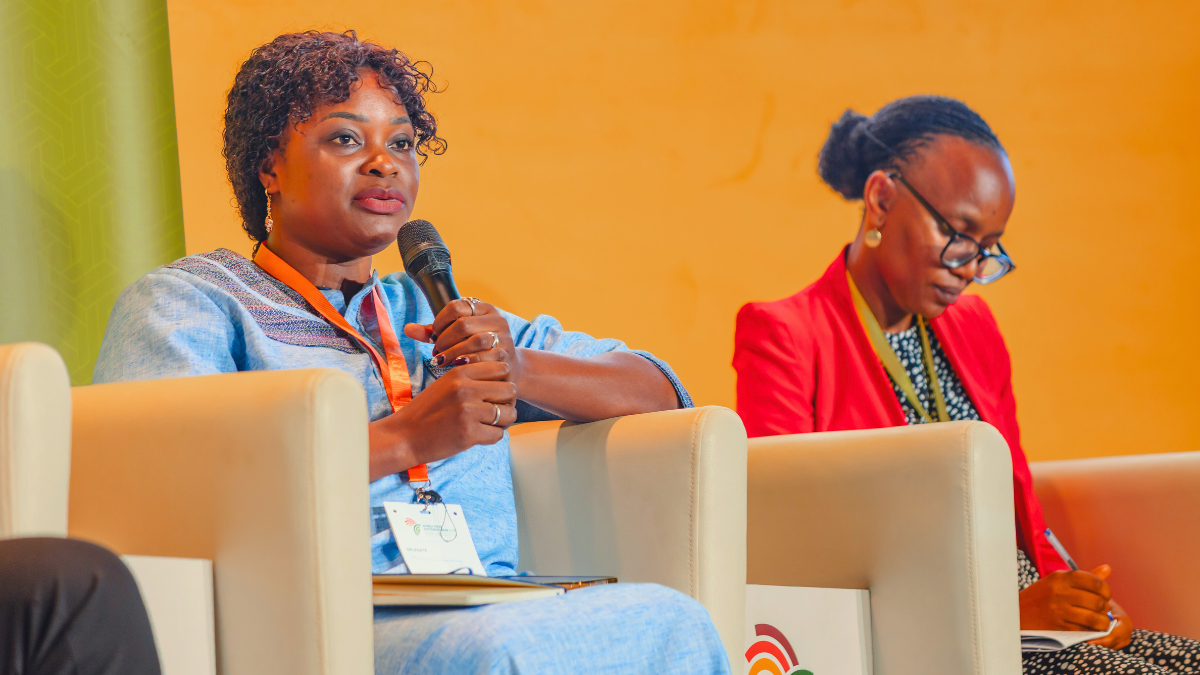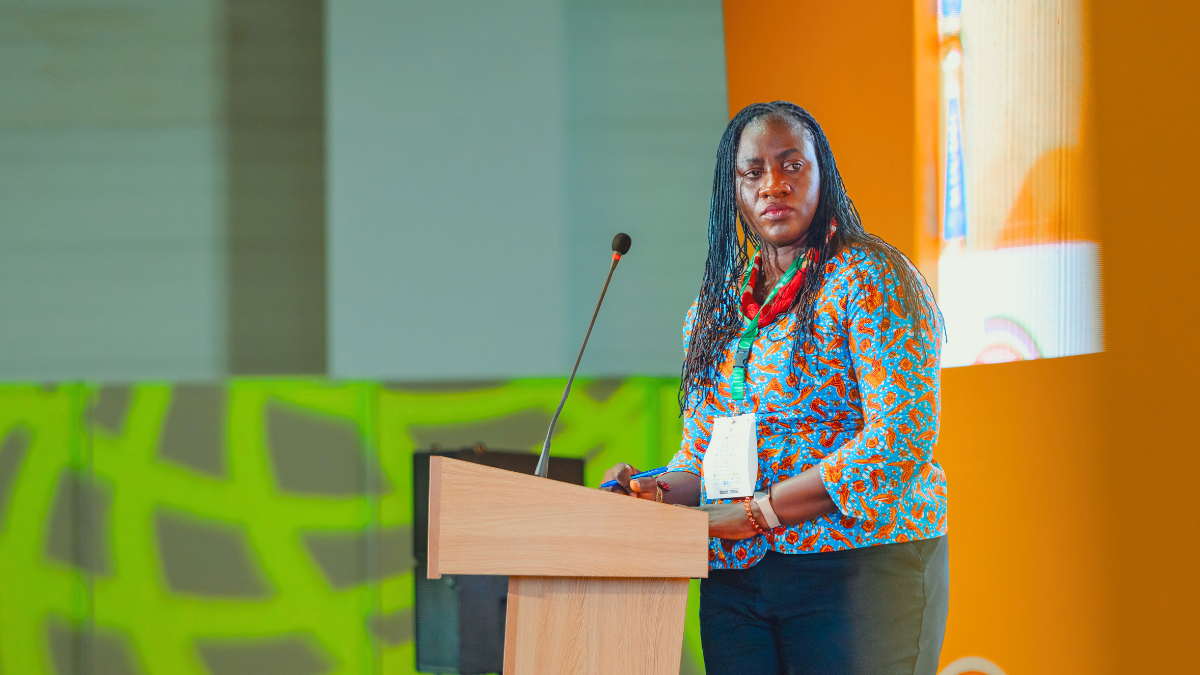
At the Africa Food Systems Forum 2025 in Dakar, Senegal, from 31 August to 5 September, Rikolto had the opportunity to bring together colleagues, partners and allies from 10 countries across East and West Africa. The conference offered the perfect setting for a side event on 'Inclusive Agri-Food Business Models: Empowering Youth and Women for Food Systems Transformation”. We explore the insights shared during the session below.
.png)
As well as serving as a meeting point for various stakeholders working on food systems across the African continent, the Africa Food Systems Forum 2025, held in Dakar, brought together Rikolto colleagues, partners and allies from 10 countries in West and East Africa.
Creating a physical space for such diverse and broad perspectives on challenges and solutions around food systems, which are not often covered by mainstream media, was meaningful and necessary.
In this space, Rikolto and its partners organised a side event on ‘Inclusive Agri-Food Business Models: Empowering Youth and Women in Food Systems Transformation.” Although the name might sound a bit abstract, the speakers did a great job of making those big words tangible.
The conversation attracted over 100 participants, including many young people, as well as entrepreneurs, business leaders, and practitioners from across the continent.
The discussions covered familiar topics within the agribusiness ecosystem: the importance of professionalisation in building confidence with buyers; the fact that "finance alone is rarely sufficient" without knowledge and skills; the potential of listening to customers to unlock opportunities for local value addition; and the ongoing barriers faced by women entrepreneurs in accessing finance and land, as well as overcoming unequal social norms.

At Rikolto, inclusive business refers to equitable and sustainable trading relationships that benefit all actors in the food value chain, particularly smallholder farmers and low-income consumers. This approach emphasises long-term collaboration, fair distribution of risks and profits, and the active involvement of groups often excluded from decision-making, including women and young people. By fostering these change on how commercial dynamics are happening, Rikolto's aim is to contribute to food systems where nutritious, healthy food is accessible and affordable to the majority of consumers.
.png)
As part of the session, our colleague Hilda Okoth brought the concept of inclusive business to life. Drawing on Rikolto's experience in Burkina Faso and Tanzania, she shared how inclusive models are being developed together with local partners, and how they might create new opportunities for women and young entrepreneurs in their specific contexts.
In Burkina Faso, Rikolto and the National Union of Women Rice Parboilers (UNERIZ) co-created and tested a franchise business model that started in 2017. The model allows women to parboil rice at home. UNERIZ acts as franchisor, providing services and training, while women are the franchisees. Parboiling is a traditional process involving the soaking, steaming and drying of paddy grains before milling.
To support the professionalisation of the model, SCOPE Pro SME assessments were carried out repeatedly. These were later followed by ABC training and coaching to improve governance, operations and financial management. The ABC is a informal collaboration between farmers, small and medium-sized farms, and service providers. Together, they market a specific product, and they do this in a way that is guided by a shared vision and competitive strategy. We also worked with TechnicPropuls and GrainPro, which led to new inventions like dryers that use sunlight and oven kits made of stainless steel.
So far, around 400 women franchisees have each processed an average of 16 tonnes. Together, they have sold more than 6,400 tonnes of parboiled rice through contracts with distributors, school canteens and humanitarian organisations. Investments of approximately €190,500 were mobilised from Kampani (56%), government subsidies (28%), Rikolto (8%) and UNERIZ itself (8%).
While challenges remain, including access to finance, quality packaging and land, the model shows how women-led initiatives could drive both economic and social change.
.png)
In Tanzania, Rikolto and its partners implemented the 'Building Inclusive and Competitive Horticulture Businesses' (BICHOBS) project, which was funded by the European Union. As part of this programme, the Agribusiness Cluster (ABC) approach was also applied.
A total of 30,000 small-scale fruit and vegetable farmers were organised into 104 clusters and 68 Farmer Business Organisations (FBOs), and connected with 500 off-takers as part of this approach. Farmers were connected to markets through 16 new linkages in the tomato, onion and chilli value chains. The FBOs also received support to develop fairer business partnerships.
Access to finance also improved. 25% of producers received loans, compared to 19% at baseline. Among those with VSLA loans, 42% used them primarily for production investments. To expand financial options, Rikolto worked with CRDB Bank and other providers, enabling farmers to select services based on their long-term needs.
SCOPE assessments showed FBOs improving from an average score of 2.46 (immature) at baseline to 3.18 (maturing) at midline. Rikolto estimates the costs of BICHOBS at €200 per farmer and €59,000 per cluster.
For Kebba Colley, Global Director at IDH, access to markets often depends on professionalisation. Olley argued that professionalisation might be the foundation for building lasting buyer relationships and strengthening Africa’s local processing industries.

“From a retail perspective, I need to have confidence that the people I have a purchasing contract with will deliver on time, in the right quality, and according to the specific specifications agreed. This last part is key. A product consumed in Senegal might need to comply with different specifications in Ghana.”
Magreth Antony Magubila, a farmer and processor from Tanzania, reminded participants that while finance is important, it may not be sufficient on its own:
“As farmers we face many challenges, but we should not forget that the challenges are in the communities. You might give me capital, but if you don’t build capacity in me, it is not easy to use that capital effectively.”
In her view, capacity-building through training and technology transfer is often the decisive factor for sustainable growth. Magreth spoke from experience, having also taken part in Rikolto’s Generation Food incubator in Mbeya, which supports young agri-entrepreneurs to grow their businesses.
.png)
“My first question was always: how can I serve the customer for 200%? What are their needs and problems, and how can I translate that into solutions?”
Drawing on his retail and coaching experience, Johan de Visser (Africa Business Coaching) emphasised the value of listening. He stressed that farmers may increase production, but without more added value from raw materials to achieve higher prices, growth remains limited. Using Ghana as an example, he noted that 95% of cashews are exported raw.
“So here in the hall of the event, I saw a beautiful example of a young lady. Selling roasted cashew coated with Ghanaian chocolate. She was bringing roasted cashew from Ghana with a chocolate layer of Ghana . And that was her bestseller! To me, that's a very good example of how local added value could generate good products and jobs”

Alimatou Ouédraogo Traoré (UNERIZ, Burkina Faso) presented the franchise model developed with UNERIZ and highlighted ongoing challenges:
“The challenges we face are mainly access to funding for equipment, quality packaging that we often need to import, and access to land. We also have to work with communities to change social norms, so that women can be entrepreneurs and independent.”
Despite these barriers, she explained that new women often join after seeing the progress achieved by earlier franchisees.

Josephine Ecklu, Inclusive Business advisor and regional representative of Rikolto in West Africa, offered a reflection:
“Real growth comes from clarity of vision, focus, and sustained execution over time. Entrepreneurs who stay disciplined and commit to one strategy are more likely to achieve lasting results than those who chase every new opportunity.”

Her words highlighted that inclusive business models require persistence and structure as well as innovation, if they are to deliver long-term impact.
----
This article draws on the reflections shared by speakers during the public session at the Africa Food Systems Forum 2025. Their contributions have been paraphrased or summarised for clarity, and are presented here with full respect for their perspectives.
Photo credits: Most images in this article were taken by the official photographer of the Africa Food Systems Forum 2025 in Dakar. Additional photos © Rikolto.